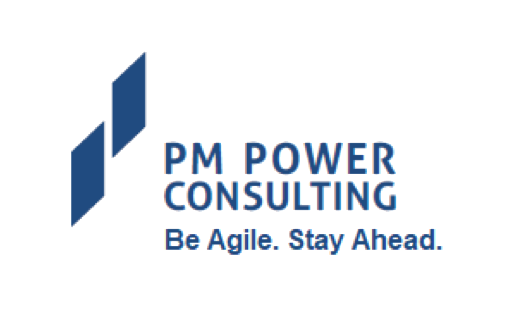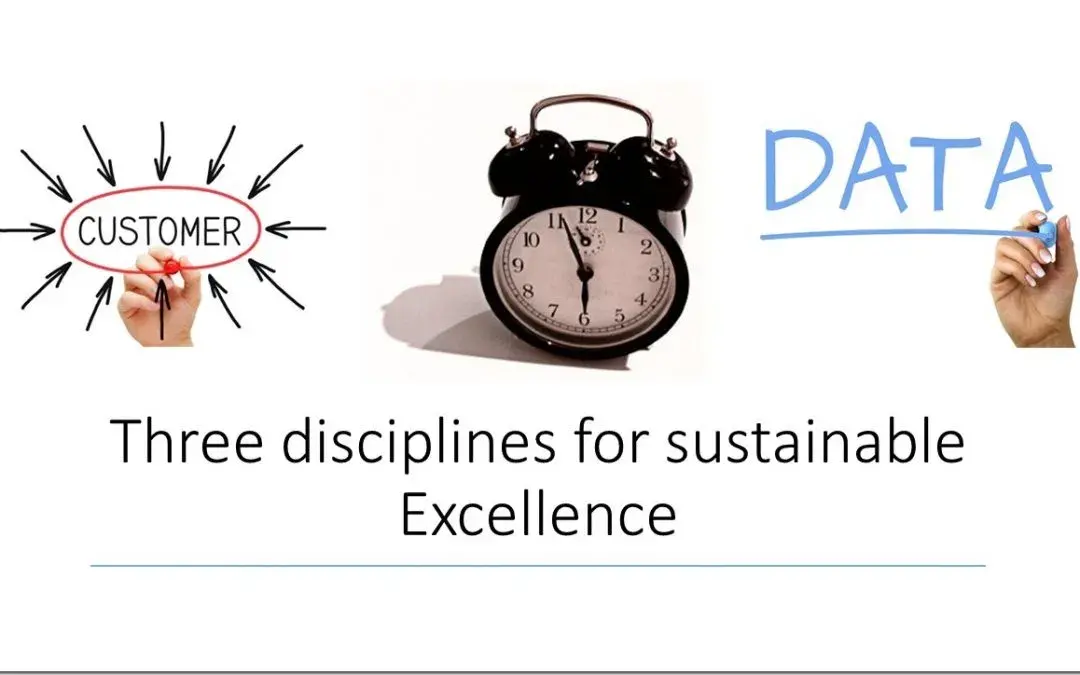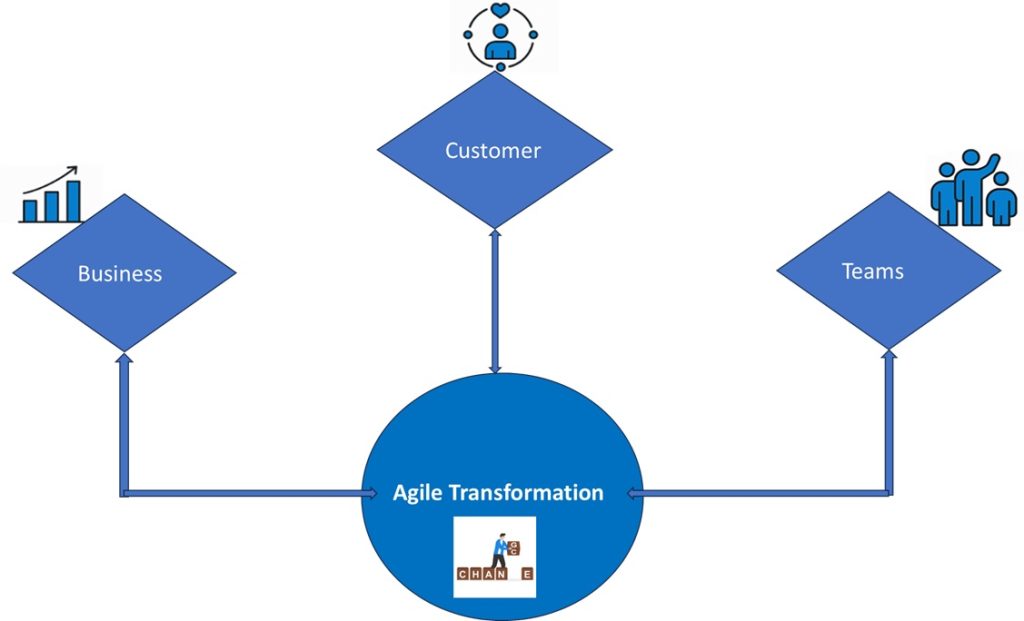Recently, I was in a conversation with my colleague, Ms Chitra Gurjar, as an episode guest on the Software Lifecycle Stories podcast.
The question I was asked was my take on Business Excellence and Knowledge Management.
As that was an unscripted conversation, I had shared the principles that I usually base my coaching on.
When I listened to the conversation, thought it would be good to share that as a blog post as well as all these are applicable in the context of an organizational unit or a team, as we normally classify in the Agile world.
What follows is a rough transcript of the conversation.
Chitra:
What does Business Excellence and knowledge management mean to you? And what about them are relevant to entrepreneurs today?
Me:
When we talk about Business Excellence, there are a few dimensions that go with it.
The first is that we need to be successful as a business, which means that we have to show business results,
There is a popular misconception that Business Excellence is more like a process or a quality model, forgetting that the processes exist lead to deliver results.
So, the moment you talk about results, it is all focused around the customer, whoever is going to be paying you.
The whole orientation of your processes or whatever you need to do would be considered as the enablers that will let you get the results.
When you put all these dimensions together, that is,
- starting with the customer in mind
- focusing on the business outcomes
- ensuring that there are supporting new processes or infrastructure systems
- the resources that are required, including things that go beyond your own enterprise
you have your framework for Business Excellence.
For startups, we don’t have too many of these support systems within the organization. So you need to depend on the network, you need to depend on others who could complement what you’re offering that they could be technology vendors, they could be logistics vendors, they could be infrastructure providers, and so on.
All these needs to be driven by leadership.
Leadership is not confined to a leader or a few leaders, which could be the cofounders, but the whole aspect of looking at breaking new ground, looking at options that have not been considered questioning status quo, etc, are all traits of leaders, which are expected from pretty much every individual in the team.
So Business Excellence is something that can be considered as an all pervasive approach, looking at both the vertical alignment to whatever the organization’s objectives are, along with the integration of various activities that happen.
While doing this, there would be a lot of assumptions made. Now whether you call it the Lean Startup model or doing the PDCA kind of cycles, you have to learn and adapt.
This whole process of learning is what I consider as knowledge management.
Knowledge Management is not just keeping some documents in an archive, which can be searched.
It is the growing active collective knowledge of the team, both internal knowledge as well as knowledge of the environment, which could be the industry that you’re working in, the competitors and everything that goes with it.
So both Business Excellence and knowledge management are just labels for someone to be successful, particularly a startup.
That was the short answer.
Chitra:
But it was a really excellent way of putting things out there. And like you said, people usually tend to examine or look at both Business Excellence and knowledge management more around the process, or just as a collection of things. So this was this was helpful.
To understand more, what would be your maybe top two tips that you would like to share some of the entrepreneurs or some folks in the startup world with respect to these two areas.
Me:
It is tempting to ask for one solution or one silver bullet.
But it is all hard work, particularly for a startup, there are a lot of uncertainties. And you know, that the percentage that succeeds is quite low.
With all that, I think if there are three areas that they can focus on, not just startups, but anybody can focus on, that would probably be helpful in progressing on a path of excellence.
The first is, you may call as a customer obsession, because it is all for the customer, the customers are the ones are paying for you.
So developing an empathy for the customers, whether it is in identifying the problems to solve, or during the usage, know how we can make their lives better, what jobs that they want to get done, and how we can make them successful.
This is something that has to pervade the entire organization, even as a culture – as thinking anything, any decision to be taken, you will always have the customers interest in mind. And of course, how you can help as an organization.
Once you have that, the second discipline I would say that you would need is time discipline.
This is very important for every individual in the organization, because when I communicate a date to you, even if you don’t consider it as a formal promise and that maybe I’m just making an announcement, if you make your plans based on that, it is very important that I stick to the timelines communicated.
So, to create a sense of trust and instill confidence, there should be an obsession on time, among the entire team.
The trust can be built over time only when you start delivering on your promises.
So the brand promise that you create must be delivered on time.
I’m not talking about the quality aspect because that is a given there is a basic necessity sticking to timelines, sticking to the commitments that are made, understanding the dependencies.
Yes, there could be changes that might happen, but keeping the customer also involved and making the plans together and always having a plan and working towards that time discipline.
If we say we want to do something in half an hour, let us finish in half an hour, let us have clear objectives.
If we say that next week, we will be able to give you the alpha version, okay, let me give it.
Sometimes due to either technology, or other constraints, you may kind of scale it down.
But still, as we say in the Agile world, make something that is release ready. Something that will cover the full cycle of a process or something that can be accomplished and not just bits and pieces that cannot be used.
The third tip is data discipline.
It is quite natural and normal to say that, oh, if I want data, then I need a process and process makes it heavy. And then I’m a startup, I have to be lean or as a project, do I do my project or do I do the data collection? – these are fairly common questions that come up many times.
Unless you start tracking data, looking at data, whatever it is, whether it is the efforts that are spent, whether it is the plan that you create, or the actual and the variance from the plan, whether it is the defects introduced, whether it is the effort spent in, say, an activity related to planning and futuristic versus activities that need to take your production systems now – would become gut feel based, with a low confidence level, most of the time.
So data discipline is also required.
To summarize, customer obsession, time discipline and data discipline, are the top three aspects to focus on, when you embark on a journey of organizational excellence.
All these are also very relevant and applicable at individual, team or organizational unit level contexts.






One Response
To the above we could add Continuous innovation to improve quality, productivity and reduce cost and time-to-market